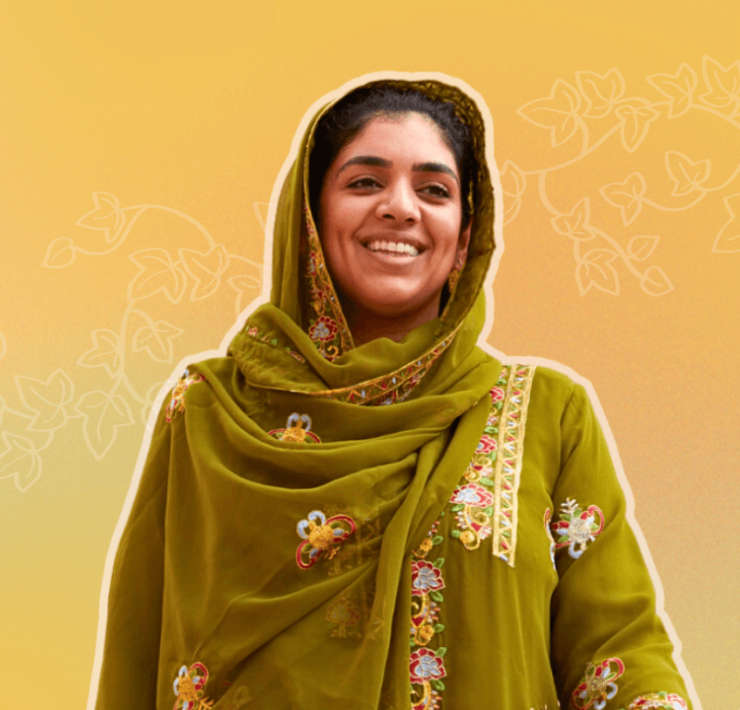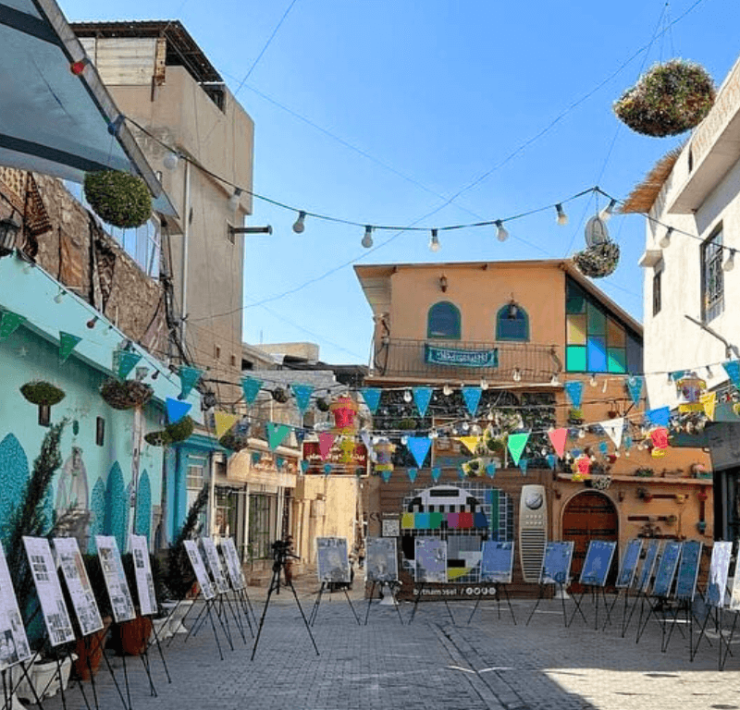On Tuesday 4th August 2020, one of the worst non-nuclear disasters in history occurred at the Port of Beirut. Last week marked one year since the devastating Beirut explosion and still the residents of Beirut are recovering from the blast. According to Amnesty International, 217 people were killed and 7,000 injured, and a further 300,000 people were displaced.
Lebanon experienced a period of French colonial rule because of the Franco-British partition of the Ottoman Empire in 1923 as well as a Civil War which lasted from 1975 to 1990. Since the resolution of the civil war, the country has been ruled by corrupt, sectarian warlords who have exploited political and economic stability to enrich themselves, at the expense of Lebanese society.
The Beirut port explosion was the latest in a series of recent disasters which have severely impacted the Lebanese people – including a tumultuous history of conflict, spillover from the civil war in Syria, and multiple political and economic crises.
These factors, in addition to the global pandemic, led to widespread, cross-sectarian protests in 2019, sparked by the announcement of new tax measures to address the financial crisis. Protests erupted again four days after the explosion which was caused by 2,750 tons of ammonium nitrate. The fact that this nitrate was stored unsafely ignited feelings of abandonment and disregard by those in power for the Lebanese people.
While it is important to be aware of Lebanon’s history of conflict which has affected the lives of the Lebanese people in devastating ways, it is also important to celebrate Lebanon’s incredible traditions and culture including its delicious Lebanese cuisine. As someone who is obsessed with Baklava, I certainly can’t wait to make my first one from scratch!
This reading list is designed to increase your understanding of Lebanon, from its turbulent history to its beautiful culture. Whether you’re looking for a challenging non-fiction read, or you want to learn how to cook delicious Lebanese food, we guarantee the books on this list will help you to learn more about this incredible country and its people.
As Beirut will be in the hearts and minds of many people at the moment, we’ve included some books which focus on both Beirut’s brutal history, but also the beauty and warmth of its traditions and culture.
The incredible image above was taken by Roman Deckert (we have cropped the image and you can find the original here).
Lebanon: A Country in Fragments – Andrew Arsan
A non-fiction book about the history of Lebanon in the 21st Century.
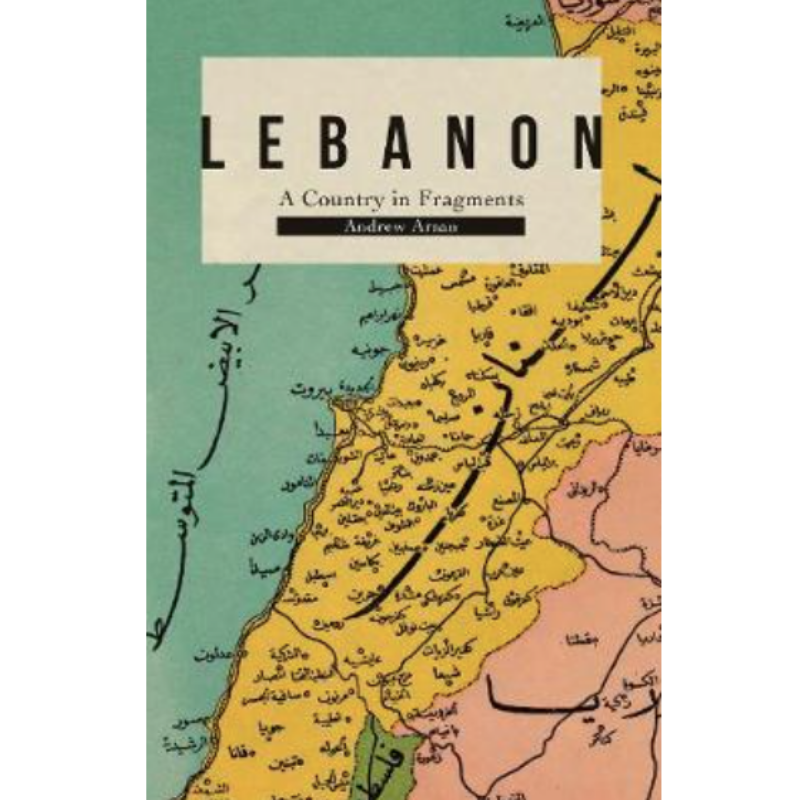
Published in 2018, Arsan’s book has received incredible reviews for its unique take on the history of Lebanon. While it looks at the high politics of parliament and foreign alliances, it also explores the politics of everyday life, from electricity black-outs to refugee camps. This is a book which explores the deep social impact of Lebanon’s crises. Sarah El-Richani, Assistant Professor of Mass Communications at The American University in Cairo, and author of The Lebanese Media has argued that this book is ‘Beautifully written and empathetic…A must-read for anyone seeking to understand this small, crisis-ridden nation.’
Pity the Nation: Lebanon at War – Robert Fisk
A class account of war in Lebanon written by one of Britain’s foremost journalists.
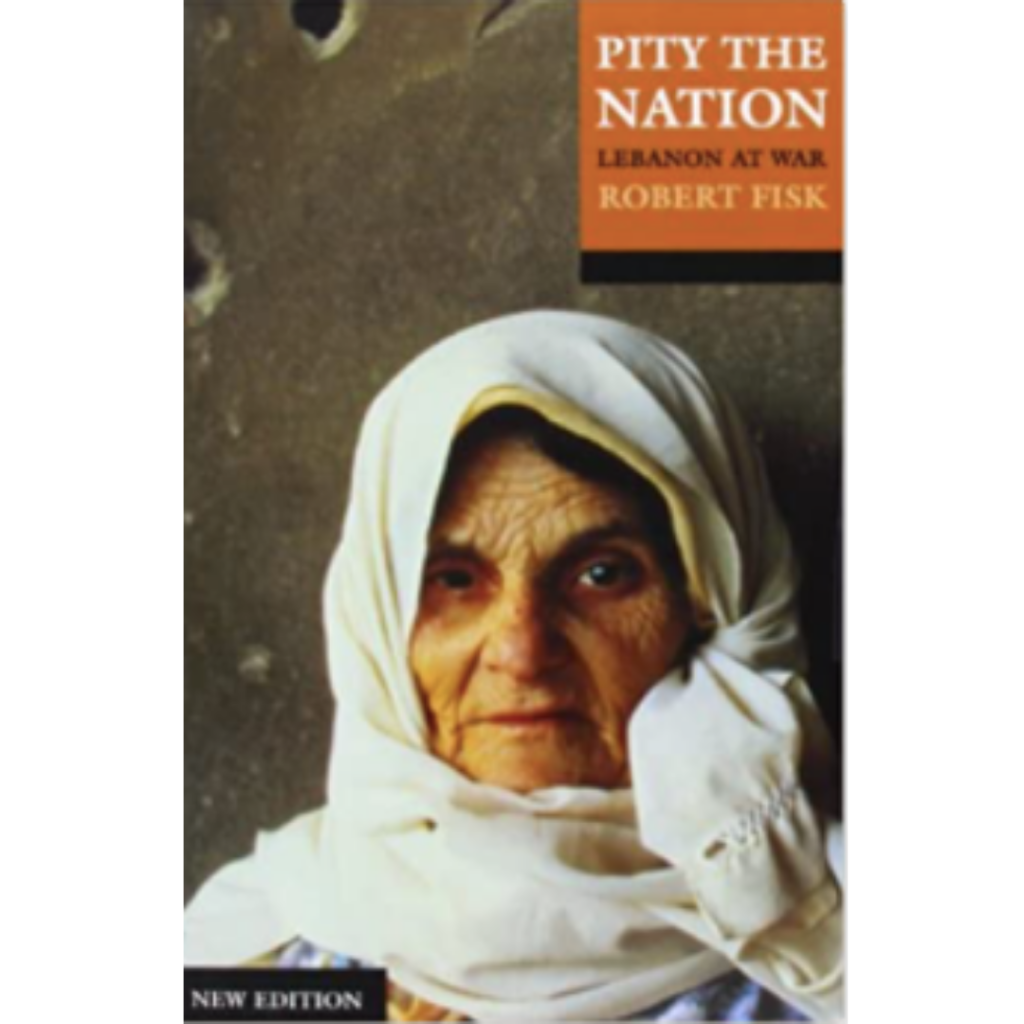
If you prefer to read about Lebanon’s history and politics through journalism, Robert Fisk’s book Pity the Nation is a classic account of war in Lebanon and is a must-have for your bookshelf. Fisk writes an eyewitness account of the war during the 1970s and 1980s that he personally witnessed for over a decade. He was one of the very few foreign correspondents who remained in Beirut during the war. As a British journalist, Fisk also writes about the ‘Western blindness that has inevitably led to political and military catastrophe.’
Paper Sparrows – Nathalie Abi-Ezzi
A gripping novel which weaves together drama, romance and the desperate search for a loved one with the violence of war.
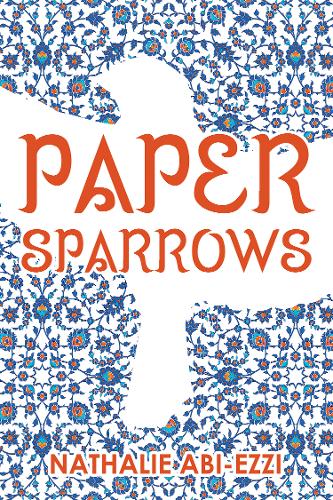
This beautifully written novel follows the story of Layla, who arrives in Lebanon after three years spent studying in London to find that her beloved younger brother has gone missing. She sets out to find him in Beirut, but then bombs start falling. This heartfelt story is set in 2006 during the July War and sets Layla’s journey, a burgeoning romance, and an exploration of the meaning of family and home, against a backdrop of artillery fire. This book is another triumph from award-winning author Nathalie Abi-Ezzi, whose childhood in Lebanon also inspired her semi-autobiographical book ‘A Girl in Dust’, set during the 1982 invasion by Israel.
Heart of Beirut: Reclaiming the Bourj – Samir Khalaf
A non-fiction book about the history of Bourj Hammoud as a public space from the time of the Ottoman Empire to the 21st Century.
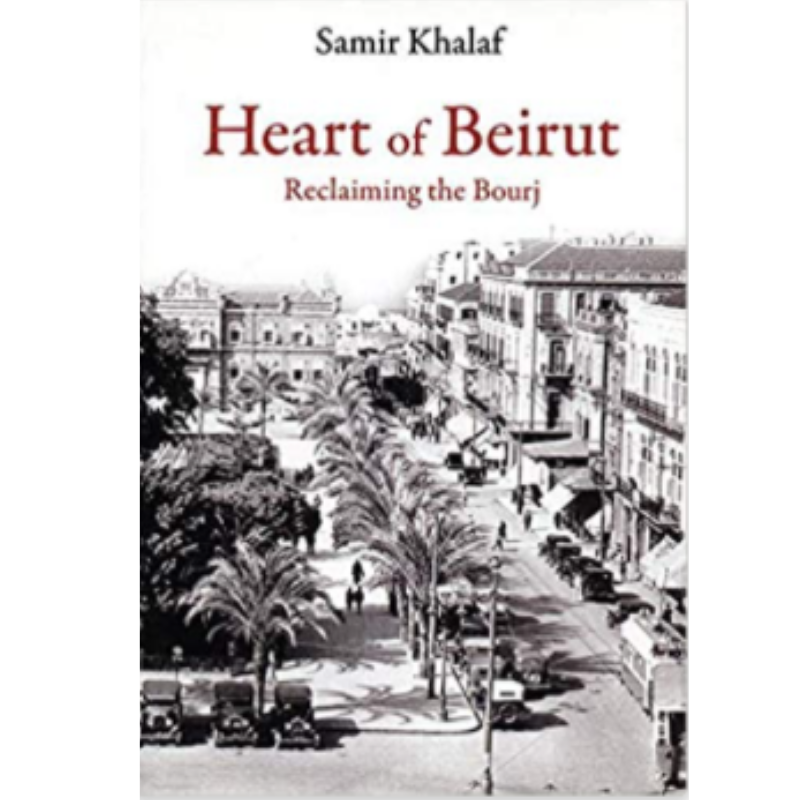
Bourj Hammoud is a town in the north of Greater Beirut with strong Armenian heritage which has witnessed such events as protests and the Ottoman execution of nationalists in 1916. It has been described as an ‘open museum of civilizations’ from ancient Phoenician to postmodern elements. Khalaf has written about the Bourj as a public space where differences are celebrated and what this means for a recent history of ‘reawakened religiosity and commodified consumerism.’
Beirut – Samir Kassir, translated by MB DeBevoise
A lyrical exploration of Beirut’s history and its extraordinary architecture shown through illustrations.
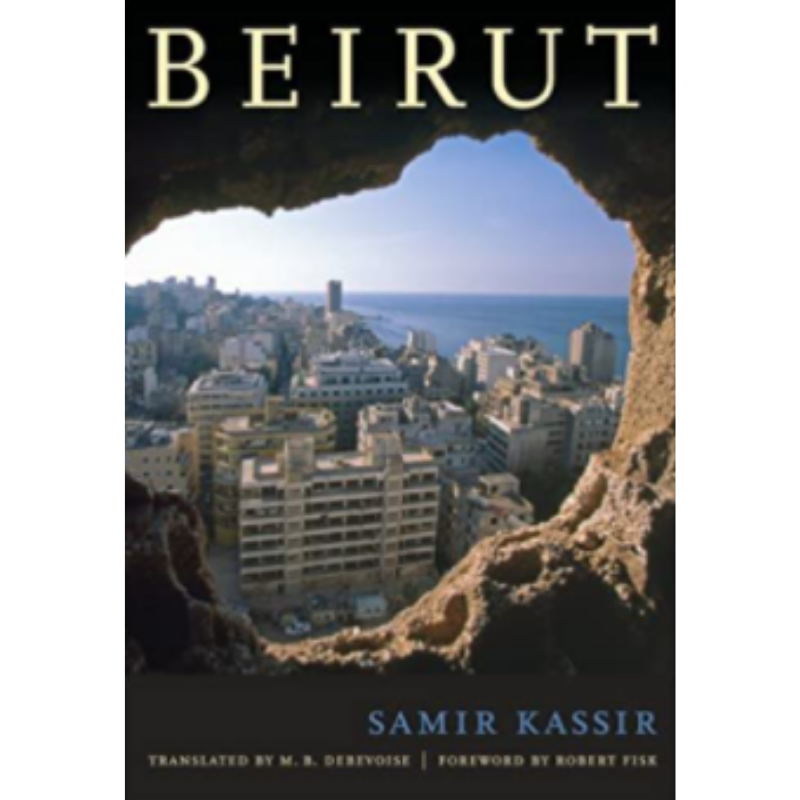
I was first struck by a review of this book which mentioned the first line – ‘There are places that inspired lyricism’ – where the book maps the history of the city of Beirut in a lyrical style. The second aspect that captivated me was the cover which reveals the city through what appears to be a hole in a still-standing damaged building; symbolising Lebanon’s resilience throughout all of its tremendous trials. Almost half of the hole shows the sky and sea which further represents beauty, hope, and resilience over four thousand years. Beirut is the story of a long and fascinating history from the time of the Seleucid Empire to the recent history of French colonialism. The book also has illustrations such as Roman baths near the Grand Sérail and the interior of the al-Umari Mosque. This is a book I cannot wait to get my hands on. It sounds like the perfect read for someone who, like me, likes to consider history through the lens of architecture and is fascinated by lyrical writing.
A World I Loved – Wadad Makdisi Cortas
A memoir about the life of Wadad Makdisi Cortas which spanned a large part of the 20th Century.
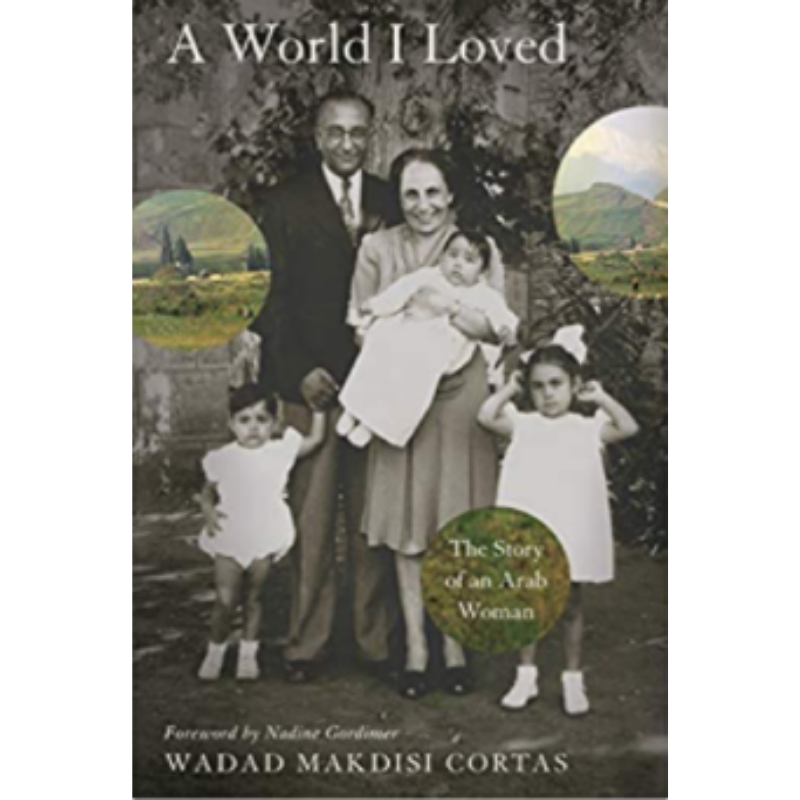
A World I Loved is a memoir about Cortas’s life from 1917 and into the 1920s, through to the Civil War which she never lived to see the end of. She was one of the first women in the region to receive a university education and worked as a headteacher for forty years. Cortas believed in the importance of education, especially for women and as readers we bear witness to a personal account of the effects of events such as the French mandate and the Civil War. This memoir has been described as ‘an elegy on Lebanon and her people’. This is a memoir I think will be critical for anyone seeking to understand Lebanon’s history from a personal perspective of someone who has lived through it.
Jasmine and Fire: A Bittersweet Year in Beirut – Salma Abdelnour
A non-fiction book told from the personal perspective of a woman rediscovering her roots in Beirut during the time of the Arab Spring.
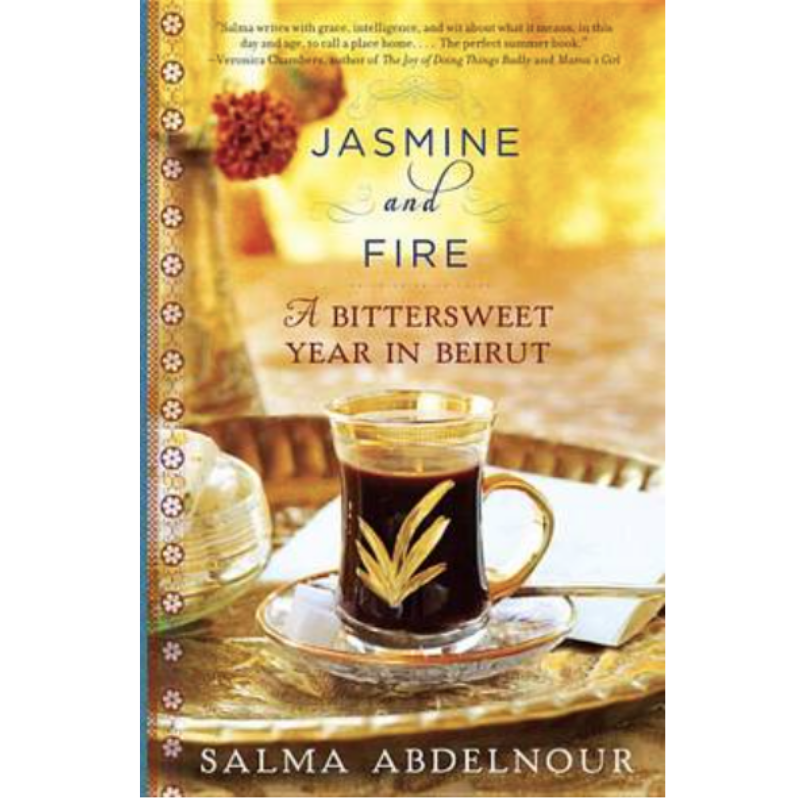
In the 1980s Salma Abdelnour, then only nine years old, fled Lebanon for the United States to seek a life away from the Civil War. Since then, Abdelnour has become a very successful food and travel writer in New York City. But Beirut still had a place in her heart and identity, so she decided to move back to the city that was once her physical home and not just a part of her memories. Jasmine and Fire has been described as a humorous journey to resettling in Beirut, but also the reality of Abdelnour finding herself in the midst of turmoil through the Arab Spring. She seeks to discover the Beirut that still lives on through its wonderful traditions and a city full of beauty amongst the tragedy that endures for the Lebanese people. It’s a journey of reconnecting with one’s roots. It’s important to not let the history of conflict overshadow the incredibly rich and vibrant culture of a country. It sounds like Abdelnour gets this spot on.
‘Spicy and citrusy, creamy and sweet, it is a smooth read that will make your stomach rumble and your feet itch to walk in Abdelnour’s footsteps and taste Beirut for yourself.’ – Culture Trip
Lebanese Cuisine – Anissa Helou
An incredible cookbook which celebrates the beauty of Lebanese cuisine.
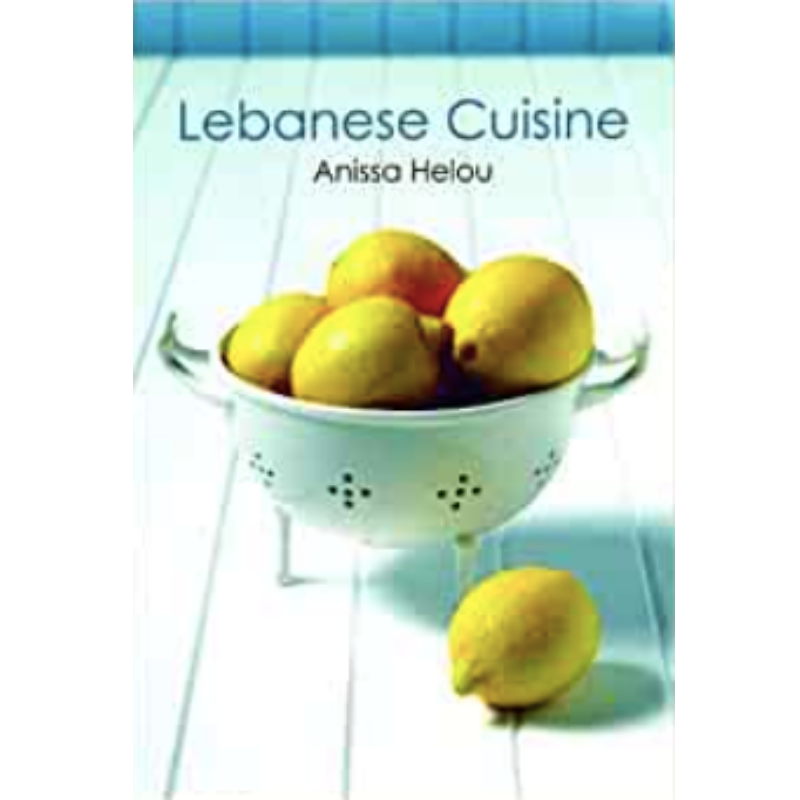
Anissa Helou is a wonderful cookery writer who I am really excited to share with you. She has had a varied and fascinating career from managing and owning an antique shop in Paris, advising on Islamic art for the Kuwaiti ruling family, and her knowledge and passion for Lebanese cuisine. This cookbook is a collection of over 250 classical and authentic Lebanese recipes. Recipes range from aromatic stews to vegetarian dishes. The book has an emphasis on the health-conscious cook so you can be sure each dish is rich in vitamins and full of tasty vegetables, fruit, nuts, grains, and cold-pressed oils. I certainly can’t wait to start cooking up some of these recipes!
Why not invite family and friends around for a night of celebrating Lebanese culture? If you want to do something for a good cause, The Hands Up Foundation organise Syrian Supper Clubs around London and in Bristol. But you could use this as inspiration to create your own for Lebanon. People from Washington D.C and Australia have been involved with the Syrian Supper Club, including one organised by our very own Laura Cretney, the founder of Pink Jinn on the Isle of Man! The Hands Up Foundation support incredible projects in Syria to help victims of the ongoing conflict.
Beirut Noir – edited by Iman Humaydan Younes and translated by Michelle Hartman
An anthology of short stories about Beirut in the 21st Century.
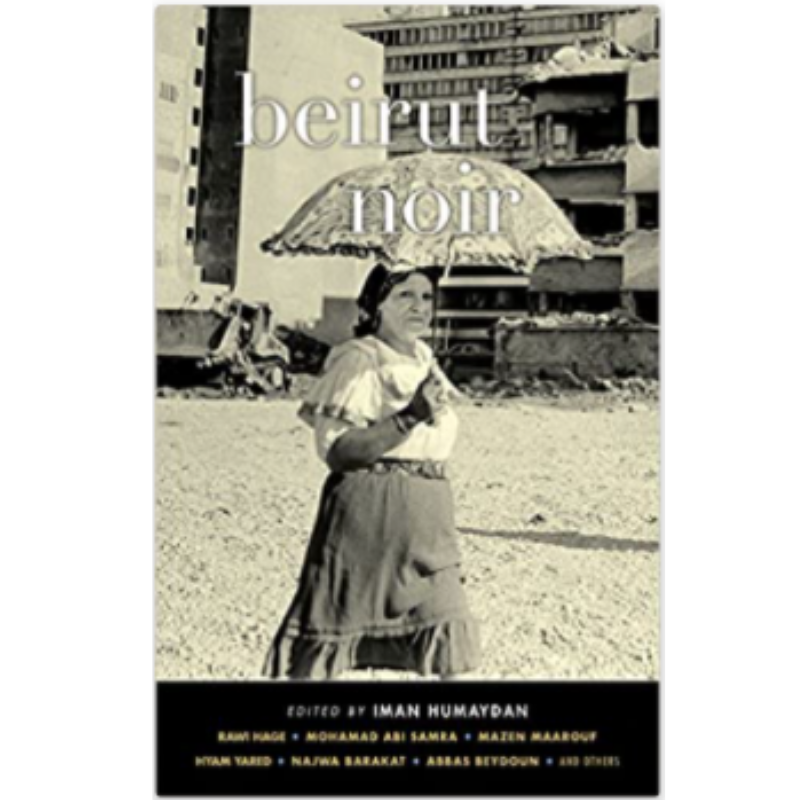
Younes has curated an anthology of short stories to capture a 21st century Beirut. Authors range from Rawi Hage and Najwa Barakart, to Alawiya Sobh and Zena el Khalil Mazen Maarouf. In her introduction to the collection Humaydan argues that ‘This short story collection is a part of vibrant, living recovery of Beirut.’ The short story form in this collection appears to be playfully used as a vehicle in which to focus on distinct moments in Beirut’s history which Hamaydan states is ‘viewed from a position of critique, doubt, disappointment, and despair.’
‘BEIRUT NOIR recovers the city once again through writing, through the literary visions of its authors.’ The idea of recovering the city suggests this collection becomes a literal and physical object of Lebanon’s history. In fact, all books are.
If you have any books which could help other to understand crucial and important investigations of Middle Eastern history, I encourage you to pass them on, share your knowledge, and discuss the history of a region so often ignored in Western education and distorted by the mainstream media.
Reading about history from different literary styles and perspectives unlocks a deeper understanding of a country and what it has lived through than just reading one style, such as a critical non-fiction book. We need memoirs, novels, short stories, cookbooks and so much more to enrich our knowledge of social, economic, and political issues. This includes thinking about how people continue to uphold a magnificent culture full of wonderful traditions.
If you’re looking for more books about the Middle East, take a look at Saqi Books who publish some of these choices. Saqi is a leading independent publisher and bookshop based in London, which publishes and sells amazing books about the Middle East and North Africa. It’s such a gem for Arabic learners too with bilingual readers! Do check them out, I’m sure you’ll fill up your basket in no time.
Some of the books are available to purchase on bookshop.org which supports independent publishers in the UK. It is a more ethical way of purchasing new books and supporting small businesses. It is a fantastic website and a great place to find some incredible books on Lebanon and the MENA region.
Have we missed anything? We would love to hear any recommendations you have on literature about Lebanon or even highlight some fantastic Lebanese writers – leave a comment and let us know!

Georgia Bridgett has a variety of experience writing on humanitarian issues and has developed a deep interest in Middle Eastern history, culture and politics particularly in the Levant region. She is also interested in relations between Europe and the Middle East and is undertaking personal/independent research in the hopes of pursuing a PhD. In June 2021 she created the online platform MENAb00ks where very soon you will find author portraits and book reviews about the culture and politics of the MENA region, written by Arab writers and scholars. (https://georgiabridgett.com/, Twitter @georgiabridgett, IG @menab00ks)


